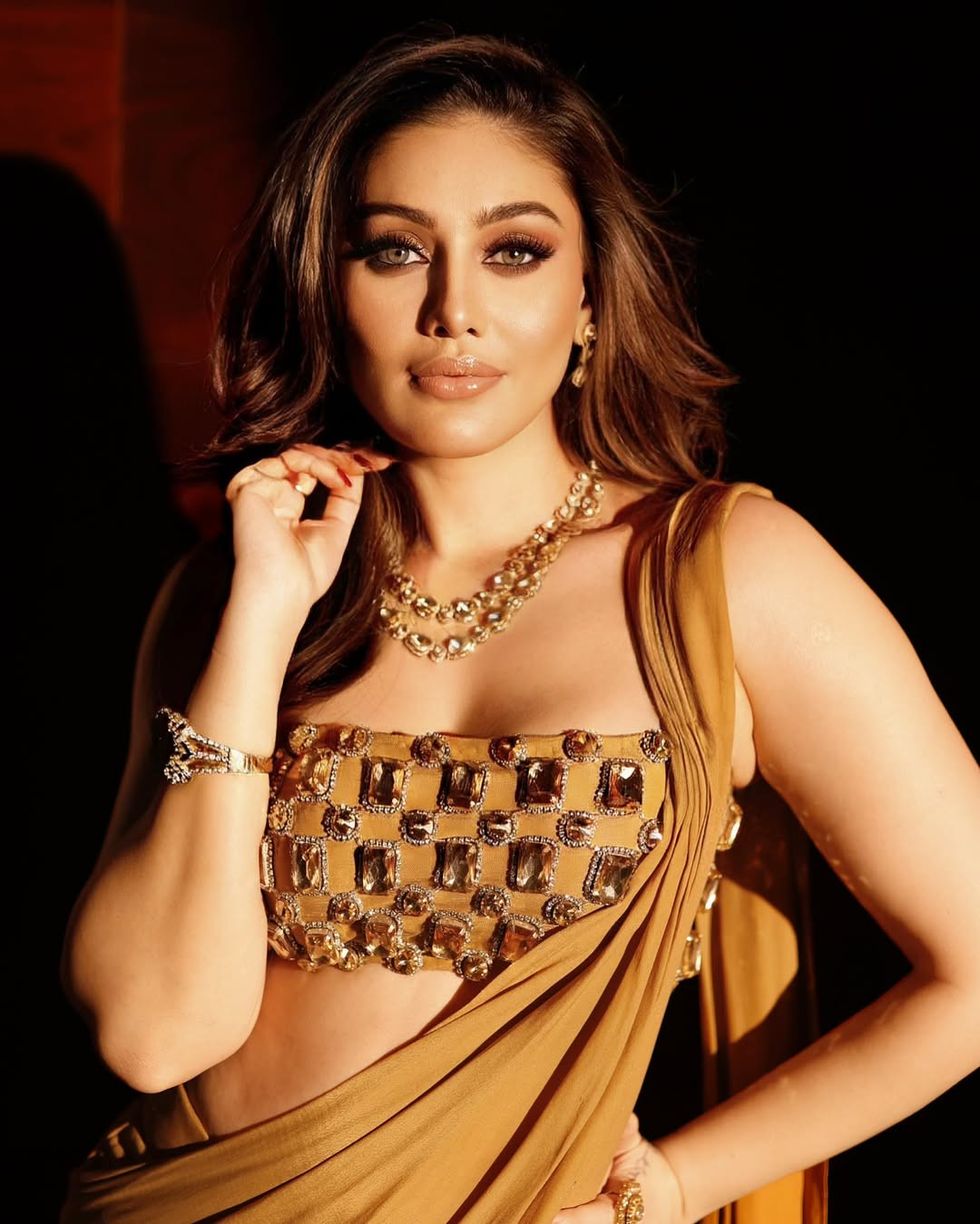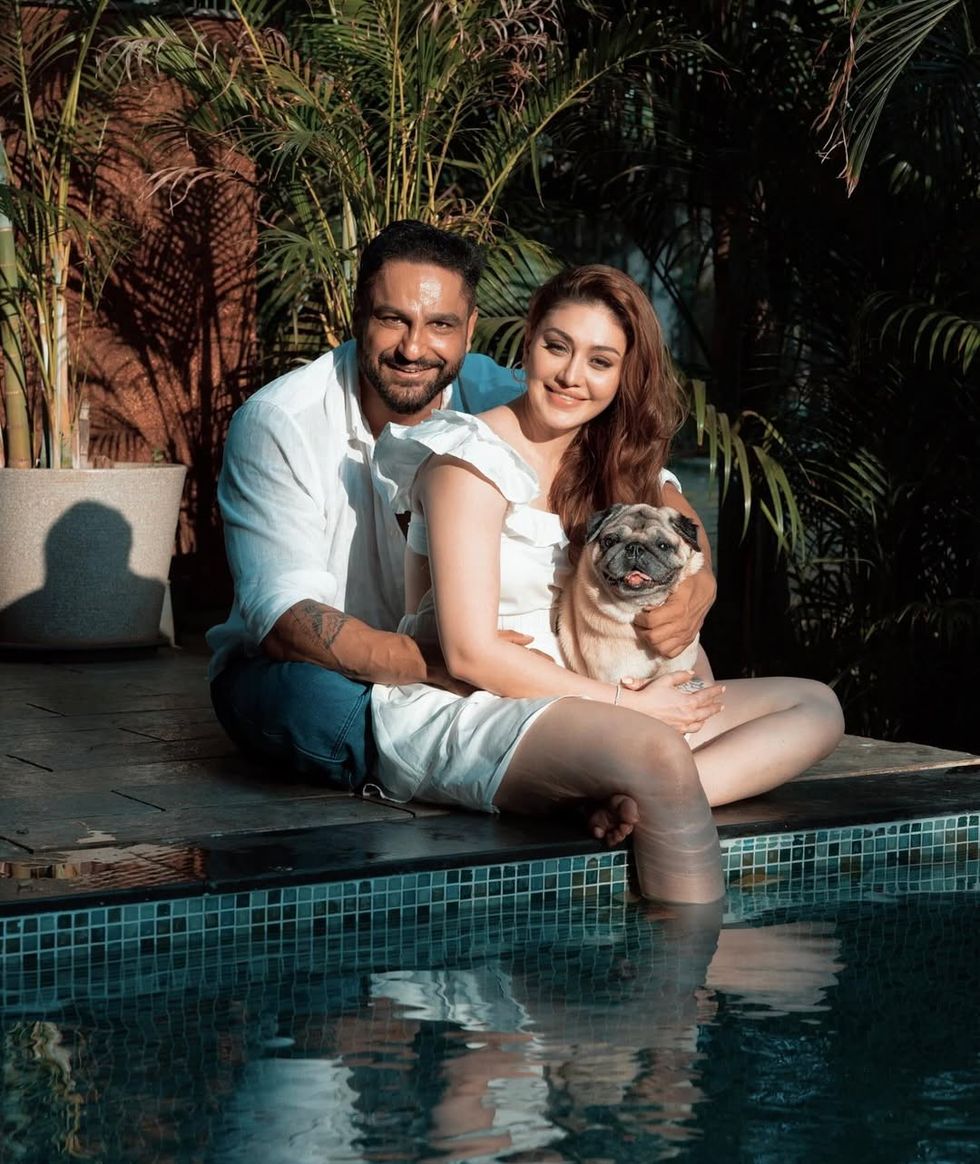by ASJAD NAZIR
SANAM SAEED TAKES PAKISTANI CINEMA TO ANOTHER LEVEL WITH GAME-CHANGER CAKE
POPULAR actress Sanam Saeed has helped introduce artistry into Pakistani storytelling with terrific turns on television, stage and in cinema.
She continues her remarkable run of projects with her newly-released film Cake, a drama about a family that sees a painful past unravel when they are suddenly brought back together.
She stars alongside Aamina Sheikh, Adnan Malik and Beo Raana Zafar in a technically great film that has already been hailed as a game-changer for Pakistani cinema.
The actress shone at the red carpet premiere in Leicester Square, London earlier this month and is looking forward to taking on more challenging projects that continue expanding cinematic horizons.
Eastern Eye caught up with Sanam to talk about her new film Cake, acting, future hopes, the joys of cinema and more...
How do you look back on your acting journey?
I feel I’ve still got a long way to go. I’ve learned a lot on the way through all three mediums of stage, TV and film, but never really had any formal training or time spent in intensive workshops to understand the art and intricacies of acting.
I think a crash course in movement and expressions is in order. I’m extremely grateful to have had the opportunity to constantly move between the stage and the screen. Both have their charm and helped me grow as an actor, and enabled me to challenge myself along the way.
You have consistently managed to find quality projects. How challenging has that been?
I often look at the opportunities I’ve had and think I’ve been awfully lucky to have some of the best projects handed to me. It is timing too, being noticed at the right time for the right projects; once you have got a couple of solid projects under your belt, other great work follows.
I’ve had my fair share of experimental work, small-scale projects, some misses and some that just made it. That is what makes for a great journey and learning experience.
How important is it for you to do performance-orientated roles?
All roles are performance-oriented, no matter what the project is. I enjoy roles that leave somewhat of an impact on viewers; where those characters either stay with people or have deeply moved them emotionally.
Tell us about your latest film Cake?
I can’t tell you too much. I play the youngest of three siblings caught up in a family drama. I think the tag line says it all: ‘Life prepares you for everything except your family’.
Who are you hoping connects to the film?
An older audience perhaps? But everyone really! We all have families and issues within their dynamics. We all experience love and loss, keep secrets, argue, make up and pull it together to keep going.
What is your favourite moment in Cake?
When unsaid things, secrets and lies finally come out, and everyone is forced to finally face the music. It is the climax of the film, which all happens in a single 10 minute take.
Why is the film called Cake?
Asim, the writer/director, is the one to answer this. But for me, cake is something we have at all occasions. Cake is cake in Urdu and English. It takes many ingredients to bake one; some taste sweet, some bitter, some salty and some insipid even.
Different textures and flavours go into baking a cake, much like people and their personalities in a family. Just as a cake has many layers, so do relationships, people, emotions etc, hence Cake seemed like the most fitting title for this film.
Talking of cake, what is your favourite type?
A tres leches any day, which is a Mexican three-milk cake. It’s simple, moist and the fruit on top gives it the perfect tartness and cuts the sweetness of all the condensed and evaporated milk used to drench the sponge cake base!
How does a movie compare to acting on TV and the stage?
Stage is larger than life with movement and body language being more pronounced. You speak from your stomach to project and use the tools of imagination a lot more. On stage, you are performing for people seated up front and far away in the back too. On TV, the acting is more in the eyes and your facial expressions.
TV is a medium for close-ups and mid-shots, so your acting is much more contained than when on stage. Film is a mix of both I find. The frames are wider so your body language is seen or noticed more. It’s not just focusing on your facial expressions and relying on close-ups; it is a combination of purposeful and natural movements and expressions. The process is very different for all three.
What do you mean?
On stage, there is immediate gratification, but months of rehearsals, lines to learn, repeating every show nightly. For TV, you most likely stay with or in a character for a long time as you have many episodes or seasons to deliver. With film, however, I find there is a lot more excitement and spontaneity involved and less time to commit too.
Therefore I find it more interesting to develop and perform characters for film. There is less repetition. You love them and leave them.
You have found success on film and TV. What has kept you so connected to the stage?
The beauty of rehearsals and being able to work in order of the script instead of in pieces, but more so the rush of being in control on stage. Once the curtains rise, it’s all in the actors hand from there. No cuts, no action calls and no retakes, just one flow in chronological order. And of course, then the immediate reaction and energy you draw from the audience and vice versa.
What would be your dream role?
I don’t particularly have a dream role. I’d like to be able to play a variety of characters that makes an audience laugh, cry or form some sort of connection. I always wanted to play Roxie Hart from Chicago and Rizzo from Grease, and I got to play both on stage!
If you could play a real-life character, who would it be?
I think we have incredible women’s stories to tell like Nazia Hassan or Benazir Bhutto. I’d love to do a biopic on one of them.
Which leading man would you love to star opposite?
Aamir Khan or Irrfan Khan as I love their timing; Ryan Gosling, just because he makes me melt; and Adrian Brody! There are so many.
What does the future hold for you?
I’d like to continue acting for as long as I can and get some training or attend workshops to learn new tricks of the trade. Also I’d like to give TV shows for Netflix and HBO a shot soon.
Do you have ambitions away from acting?
Working with children in underprivileged areas. Working with vocational training centres to provide an outlet for street kids and helping mould a future for them.
Today, what inspires you?
My inspiration has always been people who fight against all odds to achieve their dreams.
If you could learn something new, what would it be?
I wish I could sing and play an instrument. Eastern classical singing!
Why should we watch Cake?
You should watch Cake because I think it is a game-changer for Pakistani cinema. It is made with a lot of love and dedication. We hope it will give you warm fuzzy feelings; make you look inside yourself and your close circle, your family.
It makes you realise how toxic family secrets and unsaid things can be, how family is everything, and there are bonds worth fighting for to the end. Cake is a story of love, loss and the effects of time. We all experience those things and it is refreshing to see a simple, relatable, emoti-onally-charged story in Pakistani cinema today.
- Cake is in cinemas now















 Prada confirms Kolhapuri chappals inspired its 2026 Milan collectionInstagram/
Prada confirms Kolhapuri chappals inspired its 2026 Milan collectionInstagram/ Kolhapuri chappals have been crafted for centuries and received GI tag in 2019 iStock
Kolhapuri chappals have been crafted for centuries and received GI tag in 2019 iStock 
 Shefali Jariwala dies at 42 after cardiac arrest, industry mourns Kaanta Laga starInstagram/
Shefali Jariwala dies at 42 after cardiac arrest, industry mourns Kaanta Laga starInstagram/ Shefali Jariwala was married to actor Parag Tyagi,Instagram/
Shefali Jariwala was married to actor Parag Tyagi,Instagram/